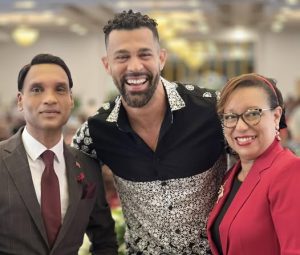By Sue-Ann Wayow
A GLOBAL biomanufacturing training hub has been established in Korea to assist countries wanting to produce their medical treatments.
The hub has been established by the World Health Organization (WHO) with the intention of empowering low and middle-income countries to manufacture their own biologicals, such as vaccines, insulin, monoclonal antibodies and cancer treatments.
The move comes after the successful establishment of a global mRNA vaccine technology transfer hub in South Africa, WHO stated in a press release this week.

WHO Director-General Dr Tedros Adhanom Ghebreyesus said, “One of the key barriers to successful technology transfer in low- and middle-income countries is the lack of a skilled workforce and weak regulatory systems. Building those skills will ensure that they can manufacture the health products they need at a good quality standard so that they no longer have to wait at the end of the queue.”
The Korean government has offered a large facility outside its capital of Seoul that is already carrying out biomanufacturing training for companies based in the country and will now expand its operations to accommodate trainees from other countries. The facility will provide technical and hands-on training on operational and good manufacturing practice requirements and will complement specific training developed by the mRNA vaccine technology transfer hub in South Africa. The WHO Academy will work with the Korean Ministry of Health and Welfare to develop a comprehensive curriculum on general biomanufacturing.
Minister of Health and Welfare, Republic of Korea, Kwon Deok-chul said, “Just 60 years ago, Korea was one of the poorest countries in the world. With the help and support of WHO and the international community, we have transitioned into a country with a strong public health system and bio-industry. Korea deeply cherishes the solidarity that the international community has shown us during our transition. By sharing these lessons we’ve learnt from our own experience in the past, we will strive to support the low- and middle-income countries in strengthening their biomanufacturing capabilities so that we could pave the way together towards a safer world during the next pandemic.”
Argentina and Brazil were the first countries from the region of the Americas to receive mRNA technology from the global hub in South Africa, joining the initiative in September 2021. Companies from those countries are already receiving training from the technology transfer hub, WHO stated.
WHO added that numerous countries responded to the call for expressions of interest from the technology transfer hub in late 2021. WHO will provide support to all of the respondents but is currently prioritising countries that do not have mRNA technology but already have some biomanufacturing infrastructure and capacity. WHO will enter into discussions with other interested countries and other mRNA technology recipients will be announced in the coming months.
Korean Ambassador to Trinidad and Tobago pleased with the initiative
Ambassador of the Republic of Korea Dongil Oh issued a statement to AZPNews.com on the facility’s establishment.
He said, “I believe the hub will help tackle global vaccine inequality and allow the Republic of Korea to continue to actively engage in the efforts of knowledge and technology transfer.”
He referred to other ways in which Korea has assisted in this region in the area of public health.
“From the onset of the Covid-19 pandemic, the Republic of Korea has endeavoured to enhance cooperation with countries and regions in the area of public health. As part of its regional efforts and overall commitment to global health, the Embassy of the Republic of Korea has assisted in several areas in response to Covid-19,” Oh stated.
The Embassy has provided personal protection equipment (PPE) supplies to the Ministry of Health, the Ministry of Foreign and CARICOM Affairs and the Police Academy. The Government of Korea also donated US $100,000 in humanitarian support through the CARICOM Secretariat to the Government of the Republic of Trinidad and Tobago towards the Covid-19 emergency and recovery efforts.
Additionally, to consolidate cooperation between Korea and the Caribbean, Korea’ government established the Republic of Korea-CARICOM Cooperation Fund.
The Korean Government provided a grant in the sum of US $541,000 for the “Strengthening of Health Systems in CARICOM to Address infectious Diseases” project, which is being implemented through the Caribbean Public Health Agency (CARPHA).
Oh said, “The Republic of Korea remains committed to strengthening public health infrastructure on both international and regional levels.”
![]()












